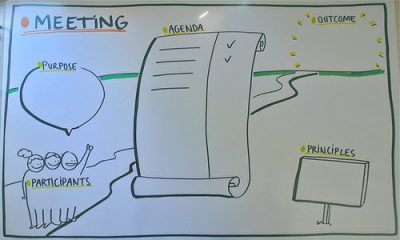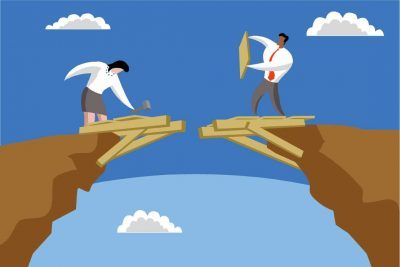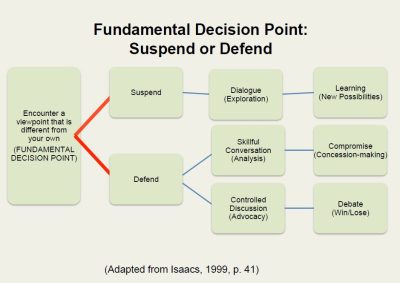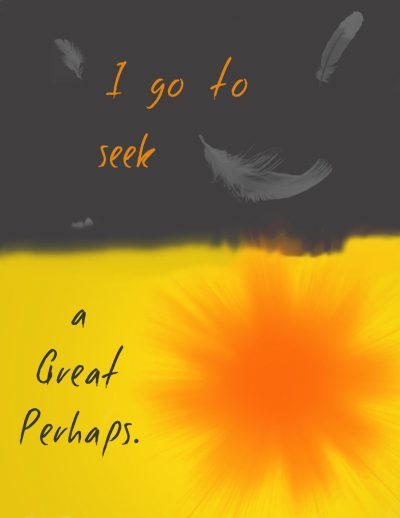“I want to stay as close to the edge as I can without going over. Out on the edge you see all kinds of things you can’t see from the center.” — Kurt Vonnegut
When I asked a group of 50 members of the Silicon Valley Organization Development Network during my presentation in June about the role of good conversations in creating change, here is what some of them said:
- Encouraging collective wisdom to emerge
- Expanding knowledge and perspective
- Growing healthy relationships
- Creating something more than and beyond what each individual brings
- Creating a sense of shared ownership
How might you and your meetings change for the better if you thought of them as opportunities for good conversations? What possibilities might you discover if you dedicated at least one meeting or conversation a month to expanding people’s perspectives, inviting their wisdom into the room, and strengthening your relationships?
The recipe for a good conversation includes asking questions of genuine curiosity, opening to truly understand the perspectives of others, listening as if your life depended on it, sharing your highest aspirations and deepest concerns, and remaining connected to yourself and others when you disagree and when you don’t know, when the way forward is unclear. Good conversation goes to the edge of what you know and steps into the uncertain to create something beyond what individuals bring.
Perhaps there’s a conversation you’ve been hoping to have about a question you’ve been mulling or a nascent idea you’ve been chewing on or an emerging issue that is worrying you. Invite others to join you on the edge and see what possibilities good conversation stimulates.
Mary’s book—“Talk Matters! Saving the World One Word at a Time”—was named one of the best indie books of 2017. Click here to purchase it.










